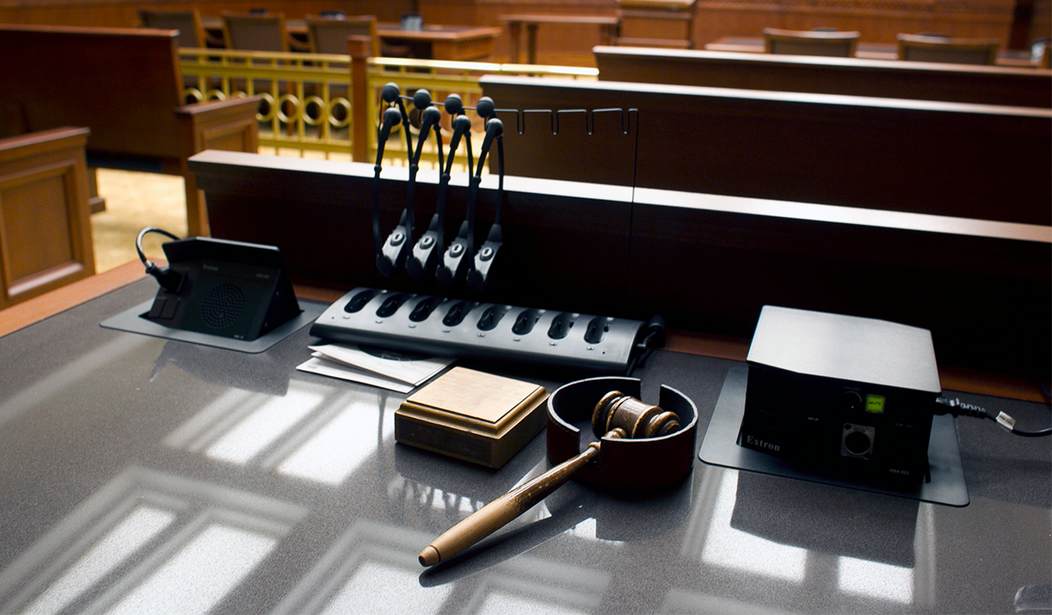As a general rule, people aren’t supposed to be punished because of the actions of another. Oh, it happens. I think we all dealt with it in school, for example, where someone misbehaved and since the teacher didn’t know who did it, everyone got the punishment. You got judged despite doing nothing wrong.
But in this country, punishment is handed out after one is convicted of a crime. That means you don’t go to jail because your friend did something and the judge just feels like you should be punished too. You have to be charged and convicted.
Or that’s how it’s supposed to work, anyway.
A judge in Florida didn’t get the memo, though.
Last week, a Florida judge forced Lisa Marok to renounce her Second Amendment rights, give up her Florida Concealed Weapon or Firearm License (CWFL) and remove all firearms and every single round of ammunition from her home, even though she had not been accused of a single crime.
If she failed to comply with the judge’s unconstitutional order, her husband could have served 19 months in a state prison. If she complied, her husband would be sentenced to probation and walk out of the courtroom a free man.
“You have a choice,” the judge told her. “Your husband or your guns.”
“Can I have a minute?” she jokingly asked.
The Second Amendment Foundation’s Lee Williams has a lot more on the subject, so you should go and read the whole thing, then subscribe to the Substack there, but here’s the short version.
Lisa’s husband, Ralph, got injured on the job and got addicted to opioid painkillers. When the law changed to make them harder to get, Ralph turned to the streets to get his fix. Because of his addiction, he broke the law by shooting around the neighborhood; striking a home and a car. Luckily, no one was hurt.
Police seized all the guns in the house, not just those used in the shooting. Those included three that actually belonged to the couple’s son, Thomas.
Prosecutors offered Ralph a plea deal that kept him out of prison: 10 years of probation, dropped to five if he completed a treatment program and regularly attended AA meetings.
It seemed they didn’t see him as a threat.
Yet the judge apparently does.
Circuit Judge Shannon H. McFee heard Marok’s case. Gov. Ron DeSantis appointed him to the bench in 2019 to fill a vacancy.
Judge McFee was not willing to be interviewed for this story. However, he submitted a written statement through his spokesperson, Sara Miles, public information officer for Florida’s 20th Judicial Circuit.
Asked why he told Marok’s wife she had one choice — her husband or her guns, Judge McFee’s response states:
“Mr. Ralph Marok accepted a plea to the charge of Shooting at or within a Dwelling, 2nd Degree Felony in the State of Florida; additionally, this plea calls for Mr. Marok to be registered as a convicted felon. The Assistant State Attorney clearly announced the plea deal to Mr. Marok that included, ‘no longer being allowed to lawfully possess a firearm or ammunition, or a concealed weapon or the ability to vote, etc.’ These implications were discussed with Mr. Marok and he voluntarily agreed to these terms with his plea, which is a downward departure based upon the plea bargain agreement between counsel. Mr. Marok scores out to 19.5 months prison. Instead, Mr. Marok received at least 5 years State Probation. The court became aware that Mrs. Marok has a concealed weapons permit and may have weapons stored in the home, which would subject Mr. Marok to a Violation of Probation and potentially going to prison. Judge McFee was taking the necessary time to ensure that Ms. Marok understood the terms of the attorney’s negotiated plea and, if she was in objection, then the court would not accept this plea. Mrs. Marok was in agreement with the plea deal and pledged not to have any weapons in the home being shared with Mr. Marok, a convicted felon.”
Now, I get the argument here. The idea is that if guns are in the home, the felon in residence has access to those guns.
But on the same token, we don’t give up our rights because of someone else’s actions. For example, if my wife were somehow convicted of a felony, do I give up my voting rights? Obviously not.
And since Ralph wasn’t believed to be enough of a danger to lock up, I can’t really see the issue here.
Especially since Lisa Marok was convicted of nothing. Her only “sin” was not leaving her husband when his addiction started spiraling out of control. That’s not something to punish, in my book, and it’s definitely not worthy of stripping her of her right to keep and bear arms.
“But she’s making that decision,” someone might argue, but I suspect this would be from someone with no sense of family. You don’t just abandon your loved ones.
Perhaps more importantly, though, you don’t have judges put you in such a position in the first place.








Join the conversation as a VIP Member